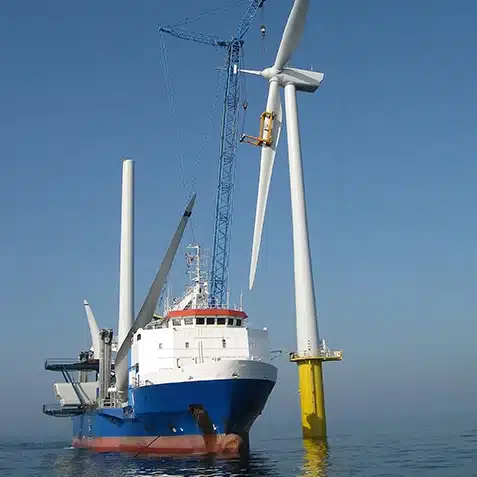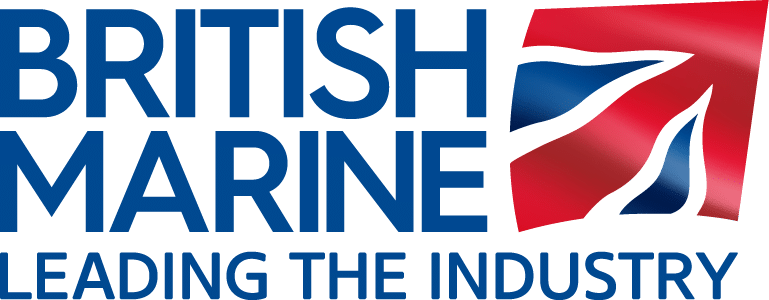Offshore Wind Energy Course
Become an Offshore Wind Energy Specialist
The course has been written for those working in this or related areas who want to expand their knowledge without the need to take time out of their busy work schedule to attend a classroom based course. It is also suitable for those wishing to enter this industry with a broad insight into the workings of Offshore Wind Energy.
This course provides an overview of the Offshore Wind Energy sector. It covers areas such as wind turbines, health & safety for offshore renewable industries, offshore wind energy layout, equipment, design and operation. Studying this Diploma can help improve your career prospects. Many students study to develop themselves in their existing role, while others study with a complete change of career in mind.


Duration:
12 – 18 months

Modules:
8 in total

Cost:
Diploma: £3,195
Certificate: £2,295

Recognised by: 
If you’re ready to enrol, download the application form below.
Offshore Wind Energy Diploma vs Certification
Choose the right path for your career:
Diploma - £3,195
Ideal for anyone looking to gain a prestigious qualification & recognised certification for a rewarding career in xxx.
Certificate - £2,295
Ideal for anyone looking to learn more about the course materical and learn more about the industry.
Offshore Turbine installation, operation & maintenance
The course consists of 8 modules. All students are required to successfully complete and pass the module assignments. Diploma students will also be required to sit and pass a final examination.
1. Wind Energy History and the Environment
- Wind Energy History
- Wind Energy and the Environment
- Oil Spill Impact and Response
- Offshore wind energy advantages and disadvantages
- Wind Energy Sustainability and Preventive Maintenance
- Future Offshore Wind Energy Trends
2. Offshore Wind Energy Layout, Equipment and Design
- Offshore Wind Energy Planning, Research, Design and Development
- Geotechnical and geophysical surveying and equipment
- Diving support
- Offshore Wind Energy Systems and Field Equipment Overview
- Wind Energy to Hydrogen
- Wind Turbine and Battery Storage
3. Remote Operated Vehicles (ROVs), Trenching and Electrical Cable Laying
- The electrical cable array overview
- Types of cable
- Cable trenching history
- Cable trenching techniques
- Trenching equipment
- Horizontal Directional Drilling
- The Scour Effect
- Alternative Cable Protection
- Cable Laying and the Cable Ships
- Cable Laying Procedural Overview
- Wind Turbine Cable Connection
- Remote operated vehicles (ROVs) and their application
- ROV launching and recovery system
4. Function and Operation of the Wind Turbine Installation Vessel (WTIV) and Support Vessels
- History of the WTIV
- Jack-up Jacking Systems
- Dynamic Positioning (DP) Operations Overview
- Propulsion Systems and Controls
- Offshore Cranes
- Jacking Operations
- Operation of Crew Transfer Vessels (CTVs)
- Miscellaneous Renewable Offshore Vessels
- Helicopter Operations
5. Turbine Operation and Ancillary Equipment
- The Wind Turbine and its Components
- Turbine Monitoring and Maintenance
- Wind Turbine Fire Protection
- Wind Turbine Installation
- Offshore Wind Turbine – Concepts
- Decommissioning
6. Electrical Systems and Substations
- Substation Overview
- Understanding Active and Reactive Power
- High Voltage Alternating Current (HVAC) Equipment
- High Voltage Direct Current (HVDC) Equipment
- Auxiliary Power and Control Systems
- Fire Protection and Emergency Shutdown (ESD) Systems
- Substation Installation, Monitoring and Maintenance
- Corrosion Protection Systems
7. Health and Safety for the Offshore Renewable Industries
- Offshore Lifting Regulations
- Offshore Renewable Crew Training
- Safety of Life at Sea (SOLAS) Regulations Overview
- Offshore Accident Investigation and Reporting
- Preservation and Safety of the Environment
- Material Safety Data Sheets (MSDS)
8. Introduction to Offshore Legislation and Governing Bodies Offshore Legislation and Regulation
- Offshore Legislation and Regulation
- Offshore Renewable Guidance
- Logistic Operations Offshore
- The Workboat Code
- National Workboat Association (NWA)
- Hazardous Areas
- US Jones Act
- The Supply Chain
- Simultaneous Operations (SIMOPS)
Student Success Story
Studying with MTA has been a game-changer for me
Studying the Yacht Brokerage diploma with the Maritime Training Academy has been a game-changer for me. It was challenging, but the knowledge I gained and the confidence it gave me, especially as a woman in the yachting industry, is priceless. I’m now pursuing the Superyacht Operations diploma to keep pushing myself forward. Learning never stops, and it’s what sets you apart.
Bianca Balfour
Yacht Brokerage, Superyacht Operations
Meet the Course Director
Ian Bryant
Course Director at Maritime Services International
My career spans 40+ years from all operating stages to Chief Engineer on a variety of vessels which include cable laying ships and selfpropelled jack-ups.
More recently from 2002 I formed an independent offshore consultancy company carrying out a range of consultancy work including training/ competency for blue chip offshore oil and gas and renewable energy companies.
Other aspects of work include operations manuals for renewable offshore and shipping assets as well as Failure Mode Effect Critical Analysis (FMECAs) for well-known offshore companies.

Offshore Wind Energy Course FAQs
Find out more about the course with our FAQs below.
See our FAQ page for more questions answered about MTA courses.
Supported by:


Why Choose The Maritime Training Academy?

Flexible
Online learning allows you to study in your own time, at your own pace from anywhere in the world. This saves on travel and classroom costs and allows you to fit your studies around your job and progress your career.

Supportive
While the nature of distance learning is independent study, we recognise the importance of support. Students can contact us at any time during their course for assistance and our team of industry experts are always on hand for advice.

Expertise
We have over 50 industry experts writing, developing and advising on our course material. We truly believe that allowing students to tap into their expertise and knowledge is of the utmost importance to fulfil your dream career.
If you would prefer to complete this as a classroom-based course, please contact us.
